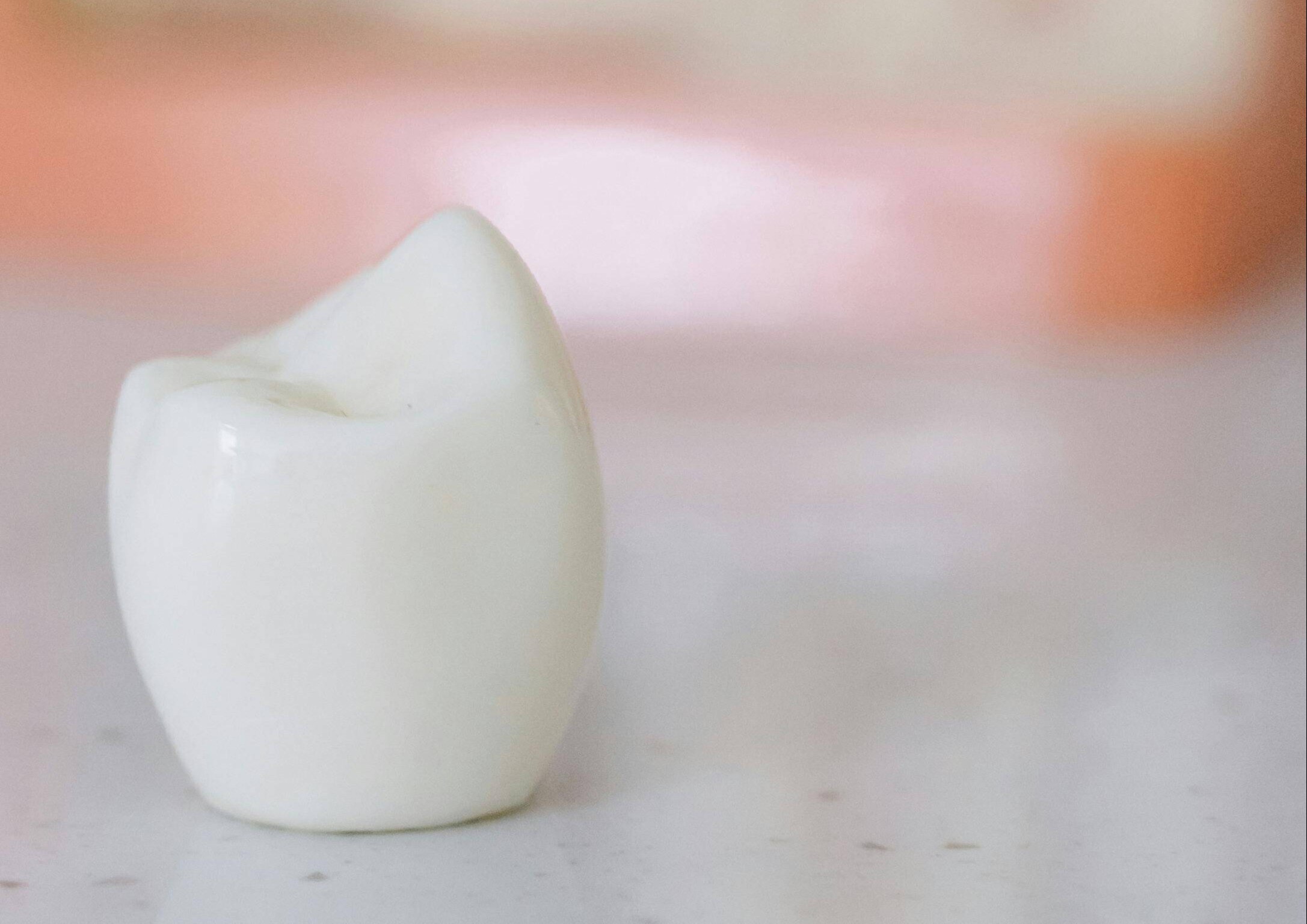Does Teeth Whitening Work with Crowns?
April 22nd, 2024
3 min read

Teeth whitening stands as one of the most sought-after cosmetic dental treatments today, promising a brighter, more radiant smile. However, patients with dental crowns often wonder about the compatibility and effectiveness of teeth whitening procedures on their crowned teeth.
At NYC Smile Design, Dr. Elisa Mello and Dr. Ramin Tabib bring their extensive experience in cosmetic dentistry to address these concerns.
This blog delves into this common query, aiming to clarify the impact of teeth whitening on dental crowns.
Understanding Dental Crowns
Understanding Dental Crowns goes beyond merely viewing them as caps for compromised teeth; it involves appreciating their role in dental restoration and aesthetics. These crowns, meticulously crafted from materials like porcelain, ceramic, or composite, are engineered to mimic the natural color and texture of your teeth, thereby enhancing the overall appearance of your smile. Their primary function is to fortify damaged or decayed teeth, reinstating their original shape, size, and strength. Unlike natural tooth enamel, which responds to whitening treatments, the materials used in crowns possess distinct color retention properties, making them less susceptible to conventional whitening processes. This variance underscores the importance of considering the specific material of your crowns when exploring teeth whitening options.

Teeth Whitening and Its Effects on Crowns
Comparing Crown Materials and Whitening Results requires an understanding of how different crown materials react to teeth-whitening agents. Here's a closer look:
Porcelain Crowns
Porcelain crowns are favored for their ability to mimic the natural appearance of teeth. They are highly resistant to staining and bleaching agents used in teeth whitening, meaning they retain their original color even after the natural teeth have been whitened. This makes them an excellent choice for durability and color stability, but it also means that any color discrepancies with natural teeth might become more noticeable after whitening treatments.
Ceramic Crowns
Like porcelain, ceramic crowns are known for their strong resistance to staining and bleaching processes. They closely match the natural teeth's color and translucency, maintaining their hue during teeth whitening procedures. Patients with ceramic crowns can expect these restorations to remain unchanged in color, contrasting with the potentially whiter natural teeth post-whitening.
Composite Crowns
Composite material is more prone to staining compared to porcelain and ceramic. While composite crowns may show some improvement in surface stain removal during whitening treatment, the underlying color of the composite does not change. This means that, unlike natural teeth, composite crowns will not become significantly whiter with conventional teeth whitening treatments. Any minor changes in appearance will likely be due to the cleaning of external stains rather than an alteration in the crown's intrinsic color.
By understanding these material-specific responses to whitening, patients with dental crowns can set realistic expectations for their post-whitening appearance and discuss the most suitable cosmetic solutions with their dental professionals.
What to Expect When Whitening Teeth with Crowns
What to Expect When Whitening Teeth with Crowns involves understanding the interaction between the whitening process and existing dental restorations. Here’s an expanded look at what to anticipate:
Color Discrepancy
When undergoing teeth whitening, it's vital to recognize that while natural teeth can become several shades lighter, dental crowns will retain their original color. This can result in a mismatch between the whitened natural teeth and the crowns, especially if the crowns are visible when you smile.
Consultation and Planning
A thorough consultation with your dentist is crucial before starting any whitening treatment. This step allows for a comprehensive assessment of your dental health and aesthetic goals. Your dentist can predict how the crowns will interact with the whitening process and help you understand the likely outcomes.
Managing Expectations
Setting realistic expectations is essential. Patients should be aware that the whitening treatment will not alter the color of their crowns, and any existing color difference between the natural teeth and crowns may become more pronounced after whitening.
Professional Guidance
To address potential color differences, dental professionals may suggest options such as replacing older crowns to match the new shade of the whitened teeth or considering alternative cosmetic treatments to ensure a uniform smile appearance.
Understanding these aspects will help individuals with dental crowns make informed decisions about teeth whitening and achieve the best possible cosmetic results while maintaining the integrity of their dental work.
Options for Achieving a Uniform Smile
To ensure a uniformly bright smile, individuals with crowns might explore alternatives like replacing older crowns to match newly whitened natural teeth or considering veneers for a more comprehensive aesthetic solution. Consulting with a dental professional is essential to determine the most suitable option based on individual needs and cosmetic goals.

Teeth Whitening With Crowns
While teeth whitening can significantly enhance the natural beauty of your smile, its effect on dental crowns is limited. Understanding the interaction between whitening treatments and crown materials is key to achieving satisfactory cosmetic results. Seeking professional advice is paramount to tailor a treatment plan that aligns with your dental history and aesthetic aspirations.
If you're contemplating teeth whitening and have dental crowns, schedule a consultation with the experts at NYC Smile Design. Our team is dedicated to providing personalized care, ensuring that your path to a brighter smile is both informed and aligned with your dental health and cosmetic objectives.
Topics:

